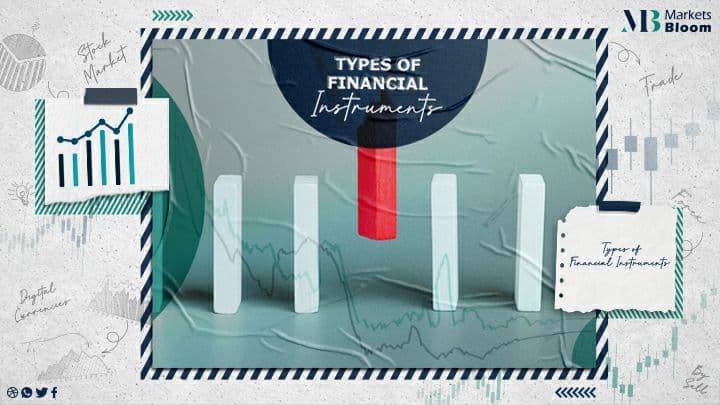Types of Financial Instruments

In this article, we will define the meaning of the term ” financial instruments” before examining some of the various kinds of financial instruments in detail.
What Is a Financial Instrument?
Financial instruments normally include obligations on one party, and profits for the other party.
Financial instruments can be traded among parties..making them less risky to hold and creating the possibility of making profits and losses on such trades.
Types of financial instruments:
1-Cash Financial Instruments
Cash financial instruments are typically generated, or issued, by organizations in order to raise capital. Those organizations are referred to as issuers.
The prices for cash instruments are set by the issuer..or arrived at by negotiation between the issuer and investors, who buy financial instruments on the predictions of making a profit.
2-Stocks & Shares
A share represents a share of proprietorship in a company. If a company issues 100 shares and you buy one , you own 1/100th, or 1%, of the company. Until you sell the share, you will be entitled to 1% of any dividends paid by that company..1% of the votes at shareholder meetings, etc.
“Stock” is simply another word for “share”.
3-Bonds
A bond is a certificate that the issuer gives an investor in return for some cash. In the case of a bond..the document will specify the terms and conditions, involving the size and frequency of the coupon payments and the date when the bond has to be repaid; called the maturity date.
so:
Flawing to pay coupons on time, or to repay the bonds on maturity, exposes the issuer to a risk of being put into default by the bond holders.
4-Loans
Loans are made by banks and other credit institutions to organizations .From the borrowers’ point of view, loans look similar to bonds but because there are fewer parties involved they are much easier and faster to negotiate and document than bonds..which could have thousands of investors involved.
5-Convertible Bonds
A bond which will be repaid or converted into shares at a date in the future.
The terms for convertible bonds will define the size and frequency of coupon payments..and the terms and the date for repayment or conversion.
Convertible bonds convert to equity on a “trigger” event, the most popular one being the issue and sale of new shares by the company.
6-Convertible Loans
A loan which will be repaid or converted into equity at a date in the future. The terms for convertible loans will set the size and frequency of interest payments..and the terms and the date for repayment or conversion.
The loans convert to equity when a “trigger” event takes place.
Derivative Financial Instruments:
The most popular assets are shares, bonds, indices (like the S&P 500), interest rates, commodities (like coffee or oil) and currency pairs.
Different types of derivative financial instruments have different characteristics, but they have 2 things in common that make them popular with traders and investors.
Firstly: a small fee often allows the derivative holder to take a big position in the markets.
Secondly: derivatives make it easy to buy, a assebasic t when you think the price will rise, also sell, a basic asset when you think the price is likely to fall.
The most popular derivative kinds of financial instruments:
Options
Possessing an option, gives you the option, but not the obligation, to buy or sell the basic asset at a certain price, called the strike price.
Options that give you the right to buy the basic asset are referred to as “calls” and those that give you the right to sell as “puts”. Every option has an expiration date.
Futures
Future works in the same way as options, except that it gives an obligation.
CFDs
Contracts For Difference are contracts made between 2 parties to exchange the difference in the price of an asset from when the contract starts to when it ends.
CFDs can be used to speculate on increasing and decreasing prices. CFDs
are purely speculative, the basic asset will never change hands at the end of the contract.
Warrants
Warrants tend to work in exactly the same way as share options, the major difference is they are issued by companies themselves and sold by them in order to raise capital.
About Marketsbloom:
Markets Bloom is a trading academy consisting of former trading industry professionals. Our aim is to help all types of traders looking to trade the financial markets.
By registering with us, you will gain amazing insights into common issues traders face as well as how to instantly improve your trading approach. Our team of experts will be with you every step of the way on your journey to becoming a better trader.
For more information on our services contact us




